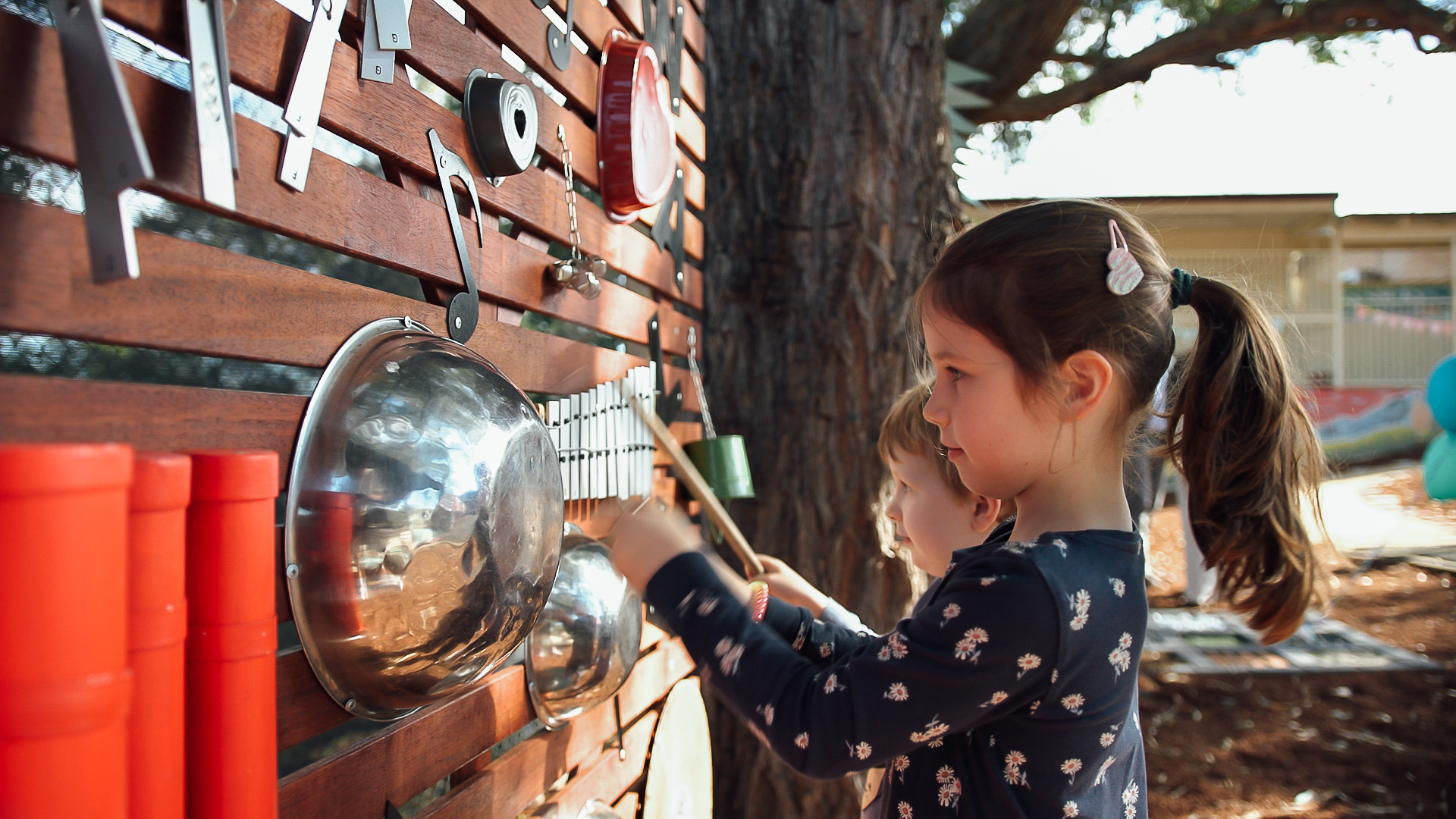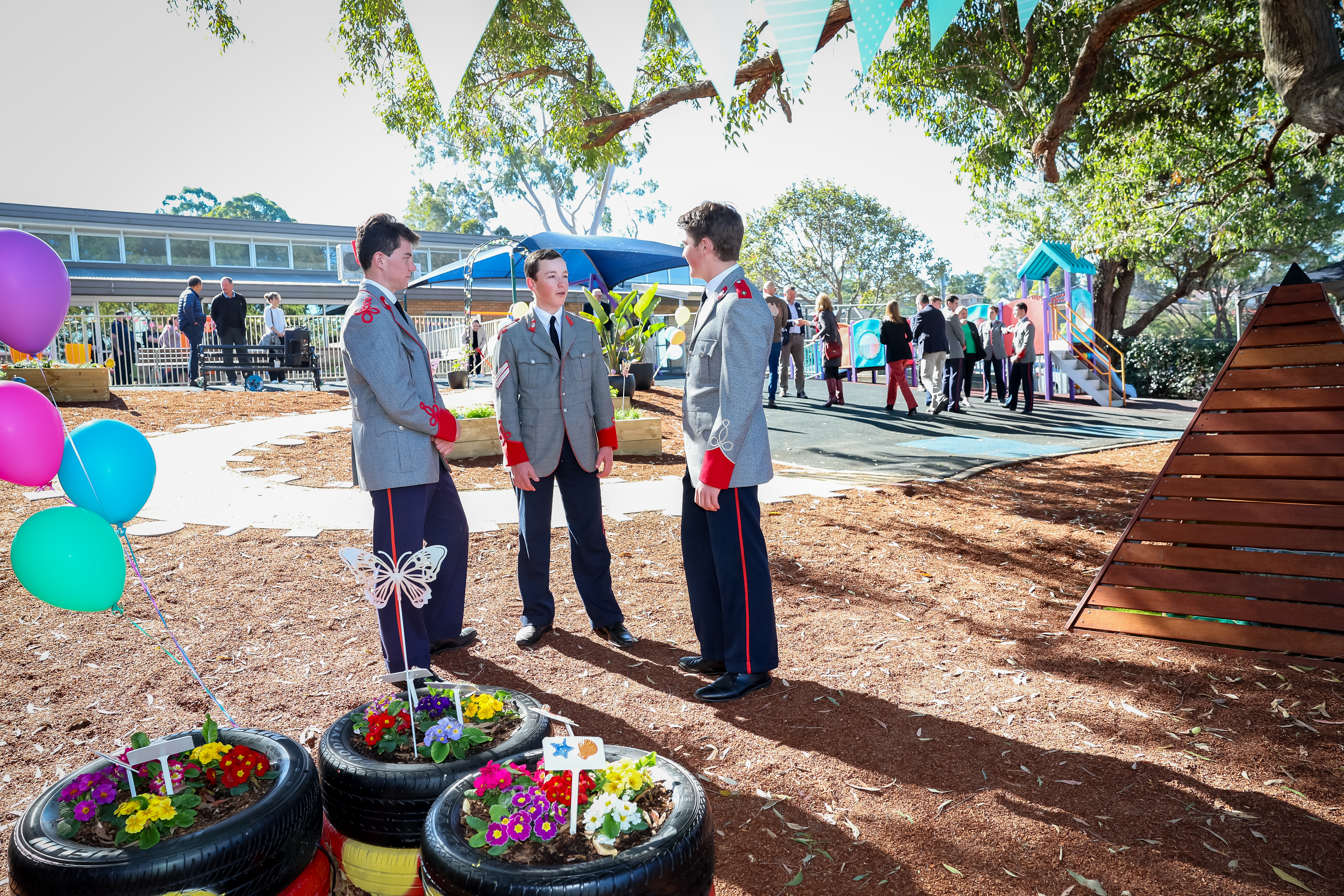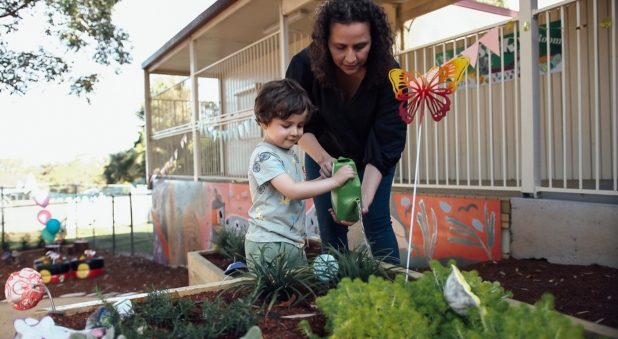A partnership between Anglicare, The King’s School, an Aboriginal artist and students from the University of Sydney has resulted in a “sensory” garden for kids and families at Anglicare’s foster care and adoption centre in Telopea.
“It’s been under discussion for such a long time that to see it exist is so exciting,” says Lucinda Mackintosh, the clinical care team leader with Anglicare Sydney’s foster care program.
Her team first discussed the ideas 2½ years ago, hoping to create a positive, nature-focused space for foster children and their birth families to get together.
“We usually have supervised visits at our site... and we recognise that these visits can bring up a whole lot of emotions for parents and the kids, and there’s a lot of research around the benefits of being in nature for calming our minds and our bodies. We thought a sensory garden would offer a different kind of outdoor space where they could engage together in different activities – but activities that were also calming.”

A sensory garden is a space that helps people to connect with nature using all their senses. The Telopea garden contains plants to touch, taste and smell in a range of colours, as well as a music wall, wind chimes, places to play, walk, sit and talk or curl up with a book. It also incorporates a range of indigenous elements for the First Nations families involved in the foster care program.
Wiradjuri artist Brett Groves undertook workshops with visual arts students at King’s, who created a mural depicting pre-colonial life along the Parramatta River, and glazed tiles to place along the garden path. The foster care team also chose the name Burudyara ngurra, which means “Butterfly place” in the local Darug language.
Says Ms Mackintosh: “It was both the beauty of butterflies and that metaphor of chrysalis and change, which is what we’re trying to prioritise for all the children that we support – prioritising their healthy development and their healing from trauma”.
Students from the University of Sydney’s Masters of Occupational Therapy program were invited to take part in the design, advised by a specialist in therapeutic horticulture. Senior King’s students undertaking a VET construction subject built the garden’s furniture and music wall, laboured to clear the ground and put in all the garden beds.

This was done as part of King’s service learning program – which, according to headmaster Tony George, is designed to help the boys “learn how to exercise Christian wisdom in society. It’s providing real-world contexts for our students to be able to explore and understand what it means to be someone of Christian character and Christian wisdom”.
The King’s School began a partnership with Anglicare in Telopea not long before the Burudyara ngurra project got under way, and the construction students put in many extra hours over recent months to ensure it was finished well.
Mr George took part in the garden’s official opening at the end of July, along with some of the students, and says they were “obviously very proud to have seen the fruit of their work. A lot of kids only see the fruit of their labour going into marks and course results... the advantage of this is it’ll be used every day by disadvantaged kids.
“Character formation doesn’t occur in the classroom. That’s where knowledge and skills happen, but you’ve got to get them out of the classroom, into the community and into areas of need.”
Students will work on the upkeep of the garden as part of the school’s ongoing partnership with Anglicare, and Ms Mackintosh says there have already been “a number of times when there have been children out there running around, and it’s just wonderful to see the kids enjoying it.
“I’m really excited about the possibilities and so impressed and grateful for how much of a community effort it’s been. We just couldn’t have created it without all the input from all those who have given of their time and resources.”






















